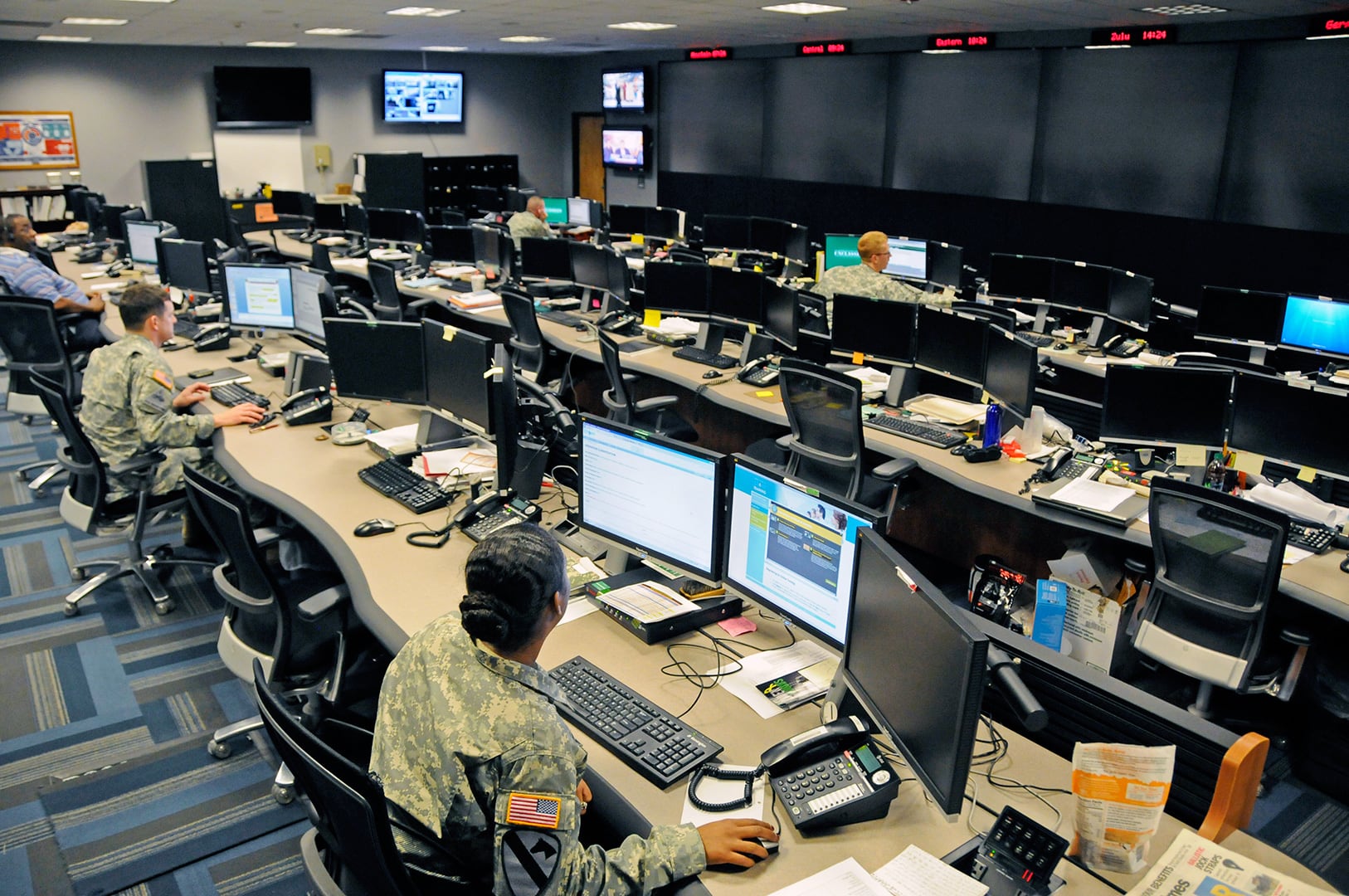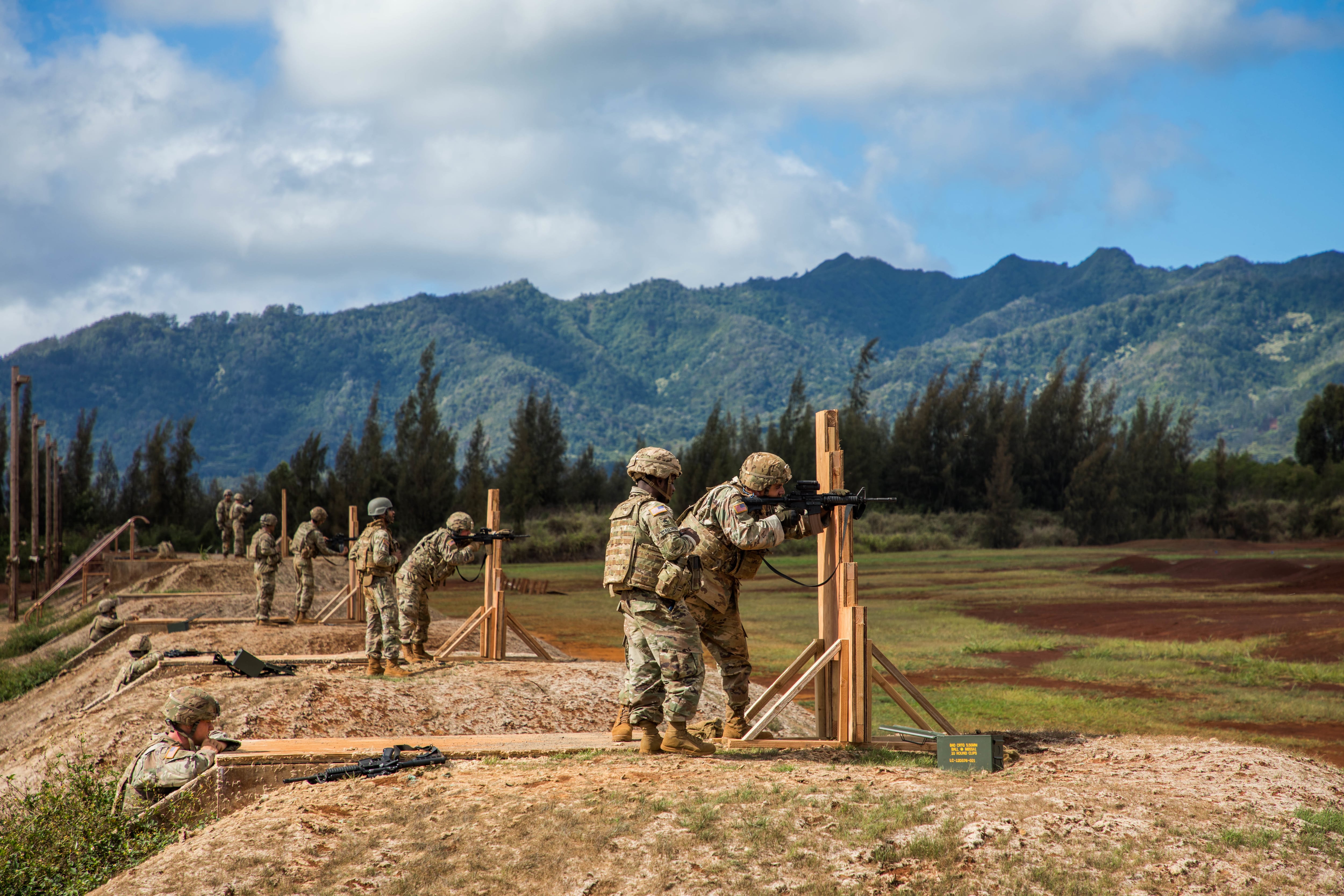An Army officer was charged this fall for trafficking firearms, at least three of which ended up in a house where authorities found nearly 100 pounds of heroin laced with fentanyl, according to federal court documents.
FBI and ATF agents arrested 2nd Lt. Kofi Appiah-Mainoo, 30, along with his associate, James Hutchings, Jr., 38, in late October. Federal charges were brought against the two men as part of an ongoing investigation into the trafficking of firearms into the Washington, D.C. area.
Appiah was an armor officer stationed at Fort Benning, Georgia, but is from the Maryland area, court filings show. He was assigned to K Troop, 2nd Squadron, 16th Cavalry Regiment, which trains lieutenants as part of the Armor Basic Officer Leaders Course.
A memo submitted to the court and signed by Appiah’s troop commander, Capt. Phillip Derosa, recommended he “remain in federal custody until the date of his hearing, or when finally separated from the U.S. Army.”
That memo also called Appiah “an undisciplined soldier" unable to meet standards and one who “has proven to be a flight risk with aggressive behavioral tendencies,” including publicly yelling and using profanity toward a fellow officer who turned him in for cheating on coursework.
The investigation that snagged Appiah began after law enforcement raided a Northeast D.C. residence and recovered multiple firearms, three of which were traced to the Army officer. More than 44 kilograms of heroin laced with fentanyl and more than 50 pounds of marijuana were located in the home along with the weapons. Those drugs are the focal point of a separate indictment involving Linwood D. Thorne, a D.C. resident.
RELATED

Court records state the man who obtained Appiah’s firearms was trafficking heroin valued at $4 million. The attorney representing Appiah did not respond to a request for comment Friday. The attorney for Hutchings declined to comment.
Between at least September and December 2018, Appiah acted as a “straw purchaser," legally buying firearms to sell to people who are unable to legally purchase firearms on their own, according to the federal indictment.
Among the weapons Appiah helped to acquire were various Glock model handguns, a Ruger LCR .38 caliber revolver and an AR-15 rifle, according to court documents. He bought the firearms at stores in Butler and Columbus, before transferring them across state lines.
Appiah and Hutchings would exchange dollar amounts for the firearms through Cash App. On Nov. 30, 2018, Appiah sent Hutchings a photograph via text message of a ledger that investigators believed depicted his inventory and prices of various Glocks, ammo drums, extended round magazines and an AR-15 style rifle that Appiah was looking to sell.
A few hours later, Appiah also sent Hutchings a screen shot of his CashApp account with the username $DMVBabyBoi. Over the next few days, the two exchanged more pictures and texts that helped each confirm payments of $1,500, $410 and $310. After a Dec. 3, 2018, payment, Hutchings told Appiah: “Thank you bro I’m going to keep sending money as it come in on my end.”
RELATED

In April 2019 — months prior to his October arrest — authorities at Reagan National Airport searched bags belonging to him and found four handguns, magazines and a large clear Ziploc bag filled with loose rounds of ammunition.
When asked why he had so many guns in his possession, Appiah said, “I like to shoot," according to court records.
Law enforcement had already interviewed Appiah in February 2019, after serial numbers on the guns recovered from the D.C. drug bust were traced back to him. Following that first interview, federal agents obtained a warrant to monitor his cell phone data and traced his whereabouts during the previous months.
Appiah told authorities that he traveled to D.C. about every two weeks and declared firearms in his checked luggage about 80 percent of the time.
“The defendant said he transported firearms to Washington, D.C. because he was leaving the military and wanted to have his firearms in D.C. by the time his separation from the Army was completed,” the court filings read. “Agents asked the defendant where his firearms were located. The defendant said he got scared when agents interviewed him the first time in February of 2019; therefore, he asked his friends to destroy and throw his firearms away. According to the defendant, he had downsized his collection.”
Federal agents continued to monitor Appiah until his April 2019 visit to D.C. alerted authorities.
By July 2019, ATF agents had cross-referenced the firearms that were screened by airport authorities and began staking out Appiah’s Georgia home before making an arrest on Oct. 28. Appiah remains in federal custody as his case awaits trial in U.S. District Court for D.C.
Appiah, who began his Army service in May 2017, has no awards or deployments on his records, Fort Benning officials said.
“We acknowledge his arrest and are cooperating with civilian law enforcement,” Fort Benning spokeswoman Supunnee Ulibarri said in a statement. "To protect the integrity of any investigation or legal action in progress, we cannot comment further.”
Kyle Rempfer was an editor and reporter who has covered combat operations, criminal cases, foreign military assistance and training accidents. Before entering journalism, Kyle served in U.S. Air Force Special Tactics and deployed in 2014 to Paktika Province, Afghanistan, and Baghdad, Iraq.




